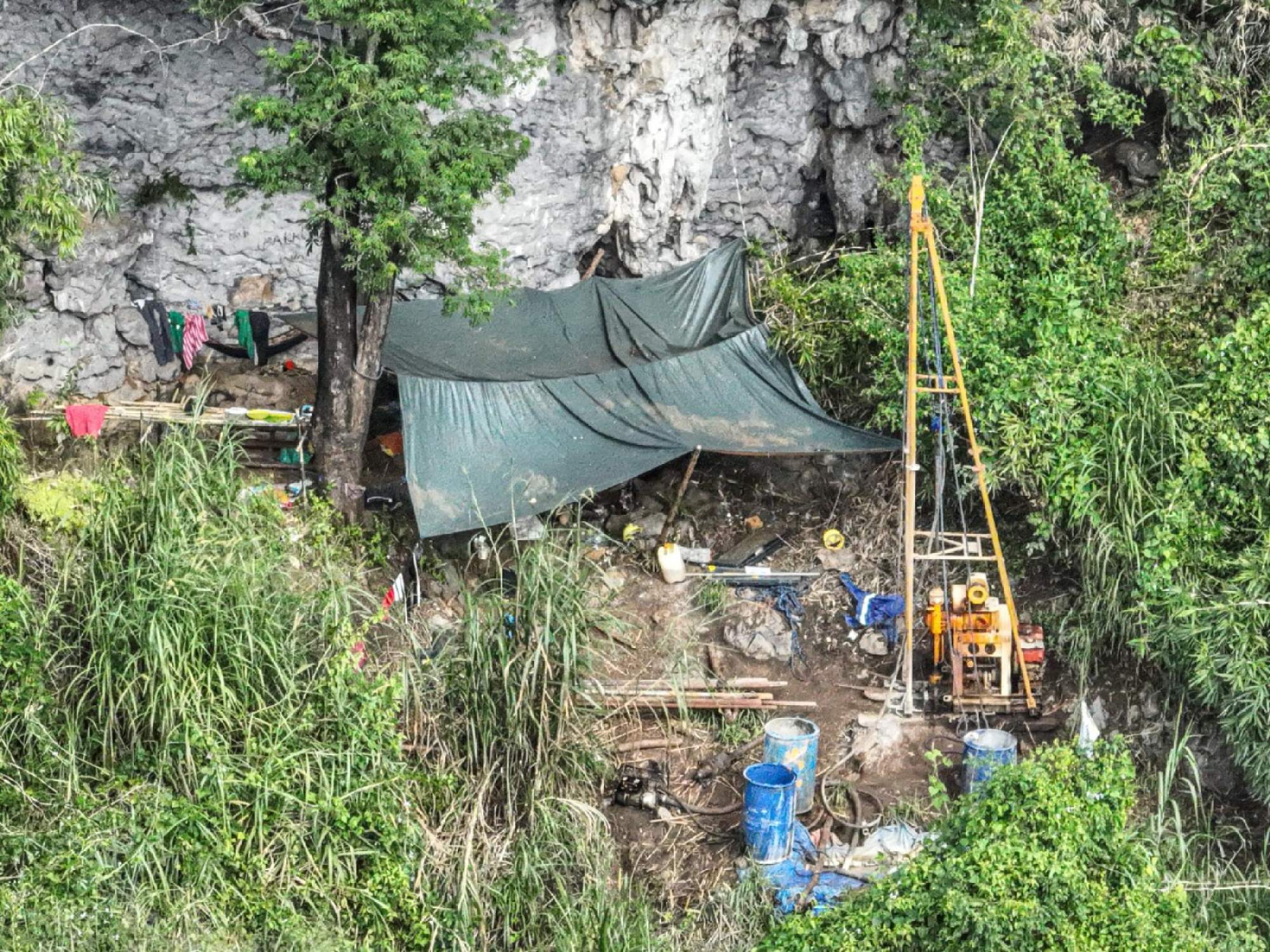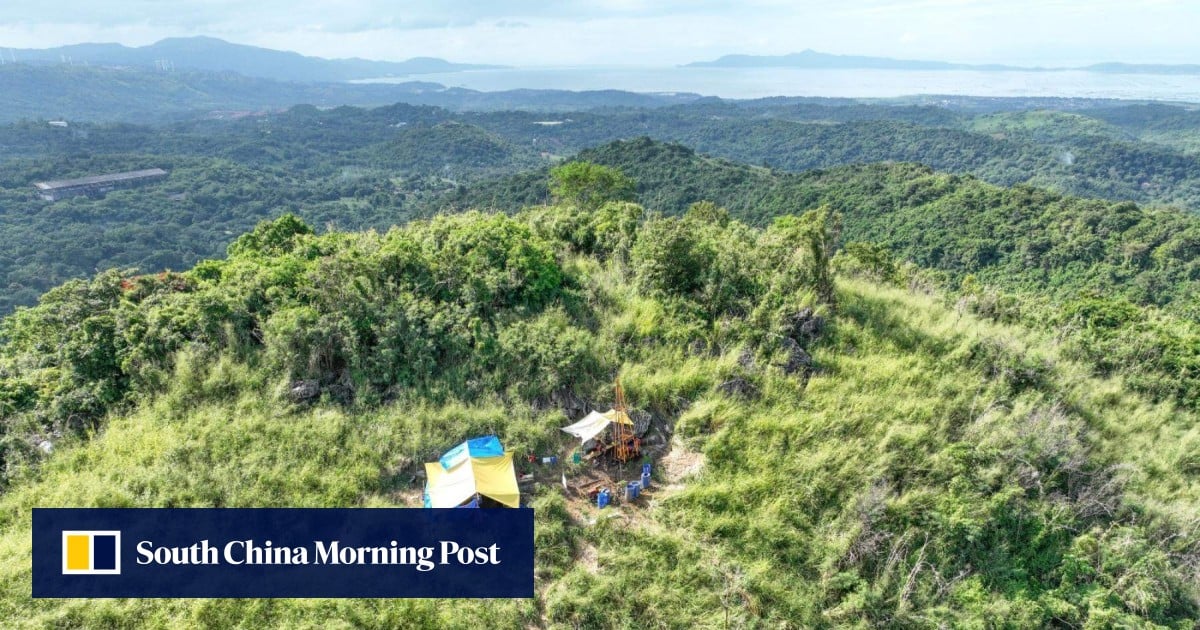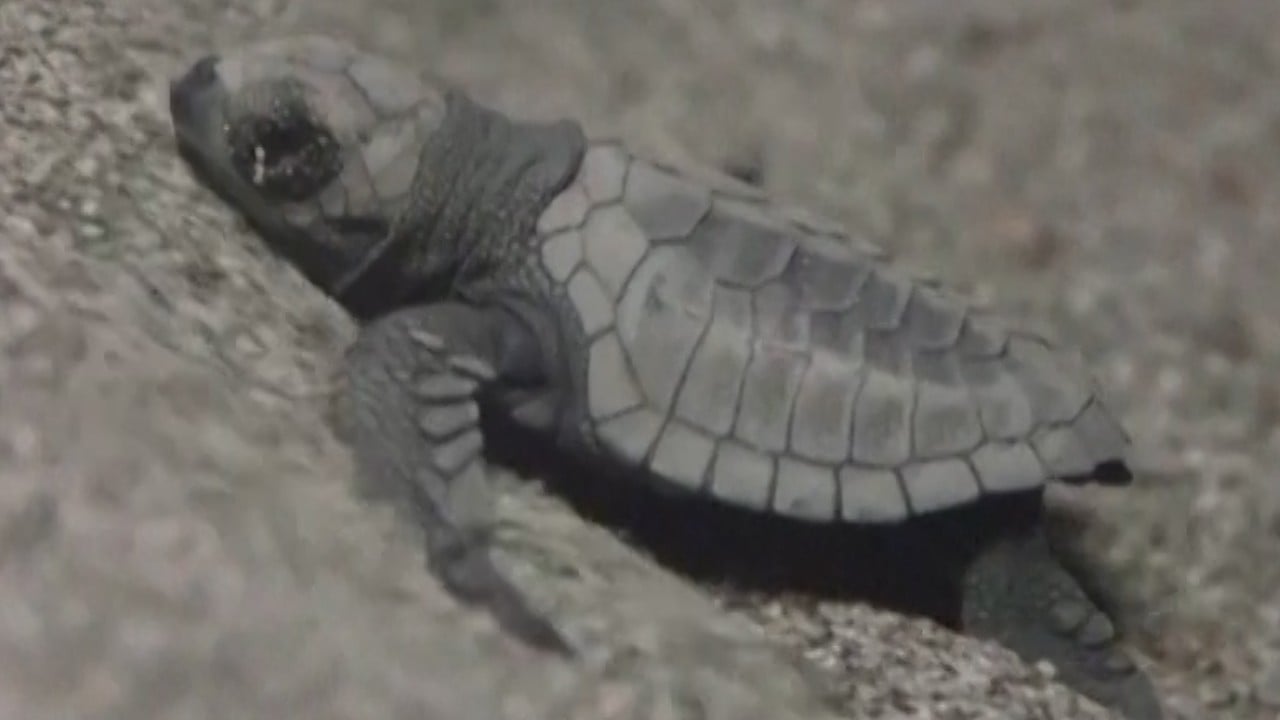
Environmental protection laws in the Philippines prohibit commercial activities in protected areas without permits from the Department of Environment and Natural Resources (DENR) and the Protected Area Management Board.
This includes the Masungi area, which was first declared a national park, wildlife sanctuary, and game preserve through a presidential proclamation in 1977 and closed for exploration and development activities in 1993.
Opposition to the wind farm project from the public and environmental activists increased since MGFI publicised its discovery, prompting members of the Senate and Congress to file resolutions last month urging an inquiry into the drilling activities.
“The drilling inside the Masungi Karst Conservation Area for the planned wind energy farm poses a severe threat to the environment, particularly endangering the local bird and bat species, as well as the delicate ecosystem of the area,” House Deputy Minority Leader Representative France Castro said in a statement on February 18.
Clock is ticking for Asian nations to switch to renewable energy, analysts warn
Clock is ticking for Asian nations to switch to renewable energy, analysts warn
Vena insisted that the project has proper permits and that all relevant stakeholders had been consulted. But Billie Dumaliang, MGFI’s co-founder, said Vena never informed her organisation, one of the stakeholders in the conservation area.
“We are the ones that initiated a dialogue with them after finding out about their plans through our drone monitoring. They never initiated a dialogue with us or consulted us, despite our clear presence and activities in the area,” Dumaliang told This Week in Asia.
Vena Energy did not respond to requests for comments from This Week in Asia. The company said last Thursday it maintained an “open dialogue with stakeholders” and remained committed to complying with environmental laws.
Asean renewable energy sector gets boost from China’s solar projects
Asean renewable energy sector gets boost from China’s solar projects
The company also said it secured the necessary permits over the four years it has been developing the project, including an environmental compliance certificate (ECC) from DENR and the Natural Resources-Environmental Management Bureau following an environmental impact assessment study as well as consent from the National Commission on Indigenous Peoples to conduct the study.
But Dumaliang said most stakeholders that MGFI spoke to, including indigenous communities living within the conservation area, were unaware of the project or the permits that the company said it had.
MGFI estimates that the project would impact about 500 to 1,000 hectares of land, potentially destroying natural habitats and affecting the ancestral domain of indigenous communities living in the vicinity due to the construction of extensive road networks needed to support the project.
Philippines halts Manila Bay reclamation work amid US concern over Chinese firm
Philippines halts Manila Bay reclamation work amid US concern over Chinese firm
Conflicted conservation
This is not the first time Masungi’s caretakers have faced encroachment on the conservation area by commercial interests. Park rangers were even shot by armed men while attempting to confront alleged land grabbers in 2021.
But Dumaliang said having a wind farm project as their latest adversary was a peculiar challenge that required nuanced messaging, since her organisation supports renewable energy.
“We are supportive of renewable energy, but we need to stand our ground against renewable energy projects that have not taken the proper care in choosing the sites where they build, such as delicate natural heritage sites and unique wildlife sanctuaries,” she said.
“These wind turbines can definitely be built in less sensitive locations without the need to disrupt the precious biodiversity within Masungi – something the company has not addressed thus far,” Dumaliang added.
The foundation faces an uphill battle as it has met resistance from private companies and several politicians and agencies – including the DENR. Dumaliang said the natural resources department appeared more keen to protect commercial interests in the protected area than in actual conservation initiatives, as in the case with the wind farm project.
Last month, DENR undersecretary Juan Miguel Cuna confirmed to local media that the agency had granted RWEC and Vena Energy an ECC – a requirement for industrial projects seen to have potential to negatively impact the environment.
Cuna justified the decision by arguing that the Expanded National Integrated Protected Area Systems Act (E-NIPAS), passed in 2018, divided the entire Masungi area into protected areas and multiple-use zones, the latter of which could be used for the construction of renewable energy projects such as wind farms.
Lawyer Lorenzo Briones, who practices energy and environmental law, in the Philippines, believes RWEC and Vena Energy fully complied with the relevant laws and did not circumvent requirements.
“To reach that level of clearance [ECC], they already studied other sites and areas in the process. So while I understand [Masungi’s] position, Vena Energy, or RWEC, followed the law,” he said.
The E-NIPAS would supersede older laws, such as the 1977 presidential proclamation declaring Masungi a protected national park.
Filipinos lose hope as China-funded bridge threatens ‘priceless’ reef
Filipinos lose hope as China-funded bridge threatens ‘priceless’ reef
JK Asturias, a sustainable development practitioner based in Manila, said conflict between competing interests like conservation and renewable energy was common in the development world and the DENR’s strategy could undermine the goals of Masungi’s caretakers.
“Agencies such as the DENR create various initiatives anchored on the principle of development, focused only on their specific set of responsibilities within their competencies. The tendency here then is to disregard concerns of other experts in related or adjacent fields – of which their existing development efforts, often taking place within the same areas subject for development, will be impacted by.”
“Intersectionality, collaboration and harmonisation should be at the heart of our approach to development to prevent the exact kind of problems that we face, where we are made to choose between one legitimate sustainable activity from another – in this case, renewable energy versus conservation,” he explained.
Even if Vena had followed the law, environmental activists argue the law is flawed and the project needs to be moved to protect Masungi.
A joint petition signed by over 30 environmental organisations, which was to submitted to the DENR on Tuesday, demanded the revocation of the permit issued for the wind farm project and argued that classifying any part of it as a multiple-use zone was a critical oversight that ignored scientific evidence about Masungi’s fragile ecosystem.
“Our plea is for a thoughtful consideration of the balance between progress and preservation, a balance we find dangerously compromised by the proposed project,” the groups wrote in the petition.
Dumaliang hopes that lawmakers’ inquiries can yield positive results for Masungi that can be applied to other protected areas.
“While we have some of the best environmental laws, there are back doors that entities can exploit for short-term gain,” she said.


